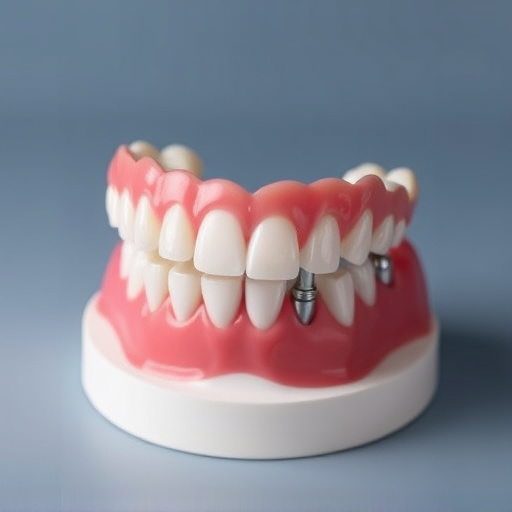Understanding When Wisdom Teeth Removal is Necessary
Assessing the need for wisdom teeth removal focuses on their potential impact on oral health. Wisdom…….
Wisdom teeth removal, a specialized dental procedure, has become an integral part of modern oral healthcare. This process involves the extraction of third molars, commonly known as wisdom teeth, which often cause issues due to their limited space and improper alignment in the jaw. The relevance of wisdom teeth removal lies in its ability to prevent impaction, infection, and damage to neighboring teeth. As a routine yet delicate operation, it demands meticulous planning and execution. This article aims to provide an extensive overview, delving into various aspects of wisdom teeth removal, from its historical roots to future prospects, empowering readers with valuable insights into this critical dental procedure.
Wisdom teeth removal is a surgical intervention designed to extract one or more wisdom teeth (third molars) that are partially or fully impacted within the jawbone or gum tissue. Impacted wisdom teeth can cause various complications, including pain, infection, inflammation, and damage to adjacent teeth. The procedure involves several key steps:
The practice of removing wisdom teeth has a rich historical background. Ancient civilizations like the Greeks and Romans documented cases of wisdom tooth extraction, often due to pain and infection. However, it was during the 18th and 19th centuries that dental science made significant strides in understanding oral anatomy, leading to more refined extraction techniques. The development of local anesthesia in the mid-19th century revolutionized the procedure, making it less invasive and more patient-friendly.
Wisdom teeth removal plays a crucial role in maintaining optimal oral health:
The global impact of wisdom teeth removal is substantial, with varying trends across different regions:
| Region | Trend | Impact |
|---|---|---|
| North America | High prevalence of extraction due to advanced dental care and awareness. | Lower instances of impacted wisdom teeth and improved oral health outcomes. |
| Europe | Increasing adoption of modern techniques, leading to more successful extractions. | Enhanced patient satisfaction and reduced post-operative complications. |
| Asia Pacific | Growing demand driven by rising middle-class populations and better access to dental care. | Potential for improved oral healthcare standards across the region. |
| Middle East | Significant investment in dental tourism, attracting patients from neighboring countries. | Increased awareness and availability of advanced extraction procedures. |
The wisdom teeth removal market is a significant segment within the global dental industry. According to a 2022 report by Grand View Research, the global oral and dental surgery devices market size was valued at USD 17.6 billion in 2021 and is expected to grow at a compound annual growth rate (CAGR) of 4.8% from 2022 to 2030. Within this, wisdom teeth extraction equipment and services contribute significantly.
The dental industry attracts substantial investments, with many pharmaceutical and medical device companies focusing on developing advanced tools for wisdom tooth removal. Startups and established entities invest in research and development to improve surgical precision, reduce procedure times, and enhance patient comfort. These innovations drive market growth and contribute to better clinical outcomes.
Wisdom teeth removal has far-reaching economic implications:
Technological advancements have revolutionized wisdom teeth removal:
Ongoing research explores further innovations:
The regulation of wisdom teeth removal varies globally, reflecting different healthcare systems and cultural contexts:
Regulatory frameworks influence:
Despite its success, wisdom teeth removal faces several challenges:
Addressing these challenges requires a multi-faceted approach:
Patient Profile: A 24-year-old female presented with severe pain and swelling due to partially impacted wisdom teeth. X-rays revealed extensive damage to neighboring teeth.
Procedure: The dentist employed 3D imaging for surgical planning. Laser-assisted extraction was performed, ensuring minimal bone removal and reduced bleeding. Post-op instructions included ice packs and medication for pain management.
Outcome: Successful extraction with no complications. The patient experienced rapid healing and significant relief from dental discomfort.
Patient Profile: An 80-year-old male visited the dentist for a routine check-up, revealing partially erupted wisdom teeth causing gum inflammation.
Procedure: Using local anesthesia, the dentist extracted the wisdom teeth under direct visualization. Post-operative care focused on pain management and infection prevention.
Outcome: The patient tolerated the procedure well and experienced improved oral health, preventing potential future complications.
The field of wisdom teeth removal is poised for further growth and innovation:
Future growth is expected in:
To capitalize on future prospects:
Wisdom teeth removal, a specialized yet critical dental procedure, has evolved significantly over time, addressing various challenges and adapting to technological advancements. Its global impact is evident in improved oral health outcomes, reduced complications, and enhanced patient satisfaction. As the field continues to advance, wisdom teeth removal will remain an essential component of modern dentistry, ensuring optimal oral healthcare for generations to come.
Q1: Is wisdom teeth removal always necessary?
A: No, not every case requires extraction. If wisdom teeth are fully erupted and in proper alignment, they can remain in the mouth without causing issues. Regular dental check-ups help monitor their position.
Q2: What are the potential risks associated with the procedure?
A: As with any surgery, there are risks, including infection, bleeding, nerve damage, and complications related to anesthesia. However, these are rare when performed by qualified professionals using modern techniques.
Q3: How long does recovery typically take after wisdom teeth removal?
A: Recovery time varies but usually lasts 2-4 weeks. During this period, patients may experience swelling, discomfort, and bloodied saliva. Following post-op instructions is crucial for a speedy recovery.
Q4: Can wisdom teeth grow back after removal?
A: Wisdom teeth typically do not grow back fully once removed. However, in rare cases, a small portion of the tooth root may remain, requiring further intervention if complications arise.
Q5: Is wisdom teeth removal painful?
A: Pain management is a key aspect of the procedure. Local anesthesia ensures patients remain comfortable during extraction. Post-operative pain can be managed with medication and ice packs as prescribed by the dentist.

Assessing the need for wisdom teeth removal focuses on their potential impact on oral health. Wisdom…….